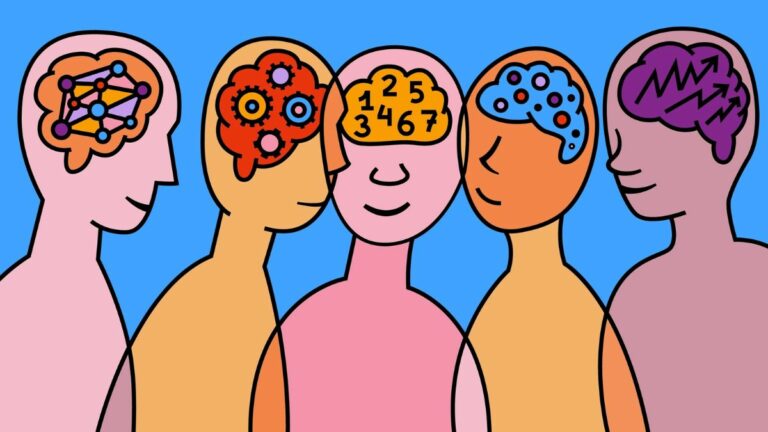
Gambling harm can impact anyone, but most treatment, support, and messaging targets neurotypical individuals—that is, those whose brains function like the majority of the population’s. While research has begun to probe the intersection of gambling harm with broader inequalities, its effects on neurodivergent individuals remain largely underexplored.
The research that does exist suggests that people with gambling problems have higher rates of attention deficit hyperactivity disorder (ADHD) and other neurodivergent traits than the general population. Flipping that around suggests the possibility that neurodivergent people are at greater risk, and that further study of that subpopulation is warranted. One study currently being conducted by IFF Research and backed by GambleAware is investigating the relationship between neurodiversity and gambling harms.
Ultimately, the aim is to establish “best practices and principles for effective treatment, support, communication, and engagement tailored to neurodivergent people” to protect those at increased risk.
Study probes neurodivergent experience of gambling harm
In March 2024, GambleAware awarded IFF Research funding for a three-phase investigation into the relationship between neurodivergence and gambling harms.
As IFF’s latest report explains, neurodiversity describes the variation in how individuals experience the world. Commonly associated with conditions like ADHD and Autism, neurodiverse people process information differently from their neurotypical peers, which can alter communication, learning, and sensory experiences.
Specifically, the project had four aims:
- To explore whether neurodivergent people face an increased risk of gambling harms
- Identify the key drivers of gambling harms for this group
- Examine barriers to formal and informal gambling support
- Establish principles and best practices for tailoring effective treatment, support, communication, and engagement to neurodivergent people.
In phase one, researchers mapped gambling’s “landscape of neurodivergent people.”
For phase two, IFF endeavored to contextualize the needs of neurodivergent people who gamble. To do so, IFF Research surveyed 45 neurodivergent people experiencing gambling and gambling harms in Great Britain through in-depth interviews and online community interactions. These findings feature in the March report.
Finally, during phase three, researchers aim to develop and test solutions to “translate insights into practice.”
Importantly, the researchers note that “neurodivergent people” refers specifically to individuals within their sample rather than the broader neurodivergent community.
Tailored treatments require simplicity, flexibility
In the meantime, phase two findings revealed that many neurodivergent people’s earliest memories of a gambling experience were positive and linked to family traditions.
Further, the results indicated neurodivergent study participants gambled for four main reasons: coping with social isolation, seeking thrill and excitement, establishing routine, and feeling more comfortable in online spaces, such as online gambling platforms.
In many cases, motivations can interact, creating complex drivers for gambling behavior. Escalation, when it happened, occurred over time, either in terms of increased frequency of gambling, increased types of gambling, or increased amounts of money spent.
For those whose gambling escalated, triggers included social isolation, bullying, and stress. For many, gambling provides routine, stimulation, and escapism, particularly for autistic people and those with ADHD. Online platforms were preferred overall, offering accessibility and sensory-friendly environments.
However, protective factors, like strong social support, risk awareness, and lower-risk behaviors, helped offset harm for some.
Still, the findings suggest neurodivergent people can experience a range of short and long-term harms linked to impulsivity, hyperfocus, and difficulty assessing risk. However, people often experience the challenges differently.
Notably, the study found barriers such as cognitive overload, impulsivity, and sensory sensitivity made accessing support more challenging. Further, difficulties processing information, inconsistency, long wait times, and a lack of tailored services compounded those struggles.
For participants, effective support prioritized simplicity, sensory-friendly formats, flexible delivery options, and staff trained in neurodiversity.
Some also emphasized peer-led networks, clear visual communication, and supportive, non-judgmental environments as integral for accessing treatment and support.
Final stage will focus on practical solutions
The research team argues that these findings indicate a need for “personalised support and treatment approaches” alongside early intervention tools to prevent gambling harms.
Effective gambling treatment for neurodivergent people should be tailored to their unique needs and offer a range of options, they added.
Simplified communication, sensory-friendly environments, and flexible service models, including online options, are essential for improving the accessibility of treatment and support. Streamlined processes, shorter waiting times, and peer support networks can further enhance engagement with services.
For this reason, stage three’s focus is the creation of resources and tools for those experiencing gambling harm and their treatment providers.
The proposed solutions include:
- A best practice practitioner toolkit. The kit will provide practitioners with concise, practical resources tailored to different neurodivergent traits, motivations, and behaviors. It will also include guidance on inclusive communication and engagement practices.
- A behaviour-focused quiz for client engagement. The quiz will explore behaviors, preferences, and challenges affecting the client’s gambling experiences and treatment and support needs. This approach aims to provide tailored and effective support without relying on broad diagnostic labels.
- An introductory training and video tool for frontline gambling treatment and support staff. The video will equip practitioners with essential knowledge and strategies to better support neurodivergent clients. Topics could include an overview of neurodiversity, including common traits and challenges; how gambling behaviors may manifest differently for different neurotypes; barriers to accessing treatment and support; principles for delivering inclusive support; and signposting to additional resources.
According to the study timeline, stage three ended in April.
However, as the researchers noted, because the phase two report presents emerging findings, the content is subject to change “pending further analysis and evidence triangulation.”
A final report will follow.





